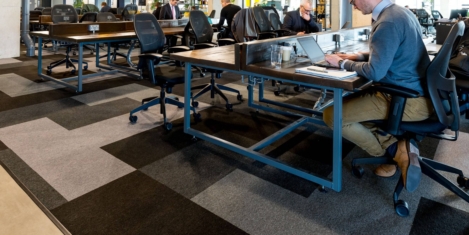July 17, 2018
Businesses told to consider the interests of workers and other stakeholders in new code
 The Financial Reporting Council (FRC) has published its new Corporate Governance Code in a bid to improve trust in UK business. The new Code will remain on the “comply or explain” basis mandatory for which it has been criticised in the past, but has been broadly welcomed by industry bodies. The code sets out a number of recommendations aimed at improving culture and trust in business, of which it suggests at least one be applied. They include having a director appointed from the workforce, a formal workforce advisory panel and a designated non-executive director. The Code will apply to accounting periods from January 2019 and is applicable to all companies with a premium listing.
The Financial Reporting Council (FRC) has published its new Corporate Governance Code in a bid to improve trust in UK business. The new Code will remain on the “comply or explain” basis mandatory for which it has been criticised in the past, but has been broadly welcomed by industry bodies. The code sets out a number of recommendations aimed at improving culture and trust in business, of which it suggests at least one be applied. They include having a director appointed from the workforce, a formal workforce advisory panel and a designated non-executive director. The Code will apply to accounting periods from January 2019 and is applicable to all companies with a premium listing.





















 Improved living standards, deflating pension pots and legal protection against age discrimination have all helped to nudge up the retirement age. The result is that for the first time since the Industrial Revolution five generations of employees are now working side by side. According to a new survey, two thirds of organisations (66 per cent) say that an age diverse workforce helped the company to have a more comprehensive skillset and knowledge base and more than seven in ten (71 per cent) felt that a multi-generational workforce brought contrasting views to their organisation. However, in the YouGov survey of middle market businesses commissioned by RSM, four in ten companies (41 per cent) said that a multi-generational workforce also increased the risk of conflict in the workplace.
Improved living standards, deflating pension pots and legal protection against age discrimination have all helped to nudge up the retirement age. The result is that for the first time since the Industrial Revolution five generations of employees are now working side by side. According to a new survey, two thirds of organisations (66 per cent) say that an age diverse workforce helped the company to have a more comprehensive skillset and knowledge base and more than seven in ten (71 per cent) felt that a multi-generational workforce brought contrasting views to their organisation. However, in the YouGov survey of middle market businesses commissioned by RSM, four in ten companies (41 per cent) said that a multi-generational workforce also increased the risk of conflict in the workplace. 




 The majority (82 percent) of employees have ideas about how their company can help improve the business claims a new survey, but over a third (34 percent) say their ideas are being ignored by their employers. The findings were announced alongside the launch of Sideways 6’s inaugural State of Employee Ideas report, which explores how employees at all levels, at businesses of all sizes, all over the world feel their company treats their ideas also reveals that 39 percent of females felt that their ideas are not being listened to, compared to 30 percent of males. Interestingly, despite the number of ideas they have, many employees remain fearful of voicing them. According to the findings, one fifth (18 percent) of those same ideas are never heard because employees are afraid to put them forward. The results also identified a clear disparity in levels of confidence to put forward ideas between younger and older employees. When surveyed, 64 percent of senior level employees strongly agreed that they have ideas and aren’t afraid to voice them, compared to 42 percent junior level employees.
The majority (82 percent) of employees have ideas about how their company can help improve the business claims a new survey, but over a third (34 percent) say their ideas are being ignored by their employers. The findings were announced alongside the launch of Sideways 6’s inaugural State of Employee Ideas report, which explores how employees at all levels, at businesses of all sizes, all over the world feel their company treats their ideas also reveals that 39 percent of females felt that their ideas are not being listened to, compared to 30 percent of males. Interestingly, despite the number of ideas they have, many employees remain fearful of voicing them. According to the findings, one fifth (18 percent) of those same ideas are never heard because employees are afraid to put them forward. The results also identified a clear disparity in levels of confidence to put forward ideas between younger and older employees. When surveyed, 64 percent of senior level employees strongly agreed that they have ideas and aren’t afraid to voice them, compared to 42 percent junior level employees.








July 6, 2018
A storm brewing around the workplace and facilities management
by Cathy Hayward • Comment, Facilities management, News, Workplace design